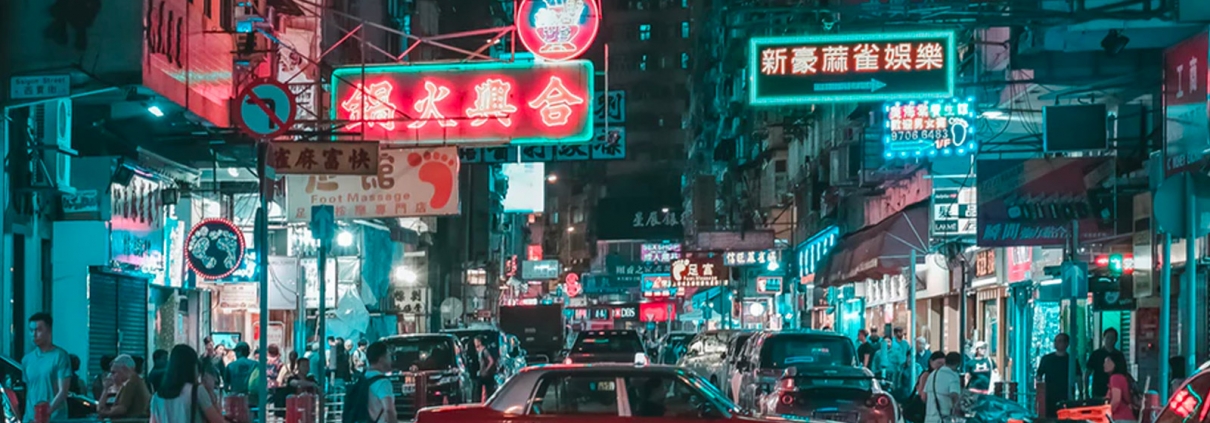As Hong Kong protests escalate, everyone (including the business community) loses
What a difference a few weeks makes for Canadians doing business in Hong Kong.
Protests in the former British colony have become increasingly violent in recent days as demonstrators and police clash over the protesters’ persistent street presence and official demands for democratic reforms, investigations into alleged police brutality and the quashing of legislation that would make it easier for the government of mainland China to extradite Hong Kong residents for prosecution. Police have drawn their weapons and fired water cannons on protesters, some of whom threw bricks and Molotov cocktails at the authorities.
Hundreds have since been arrested or detained as part of a steadily intensifying response from Beijing, including several leaders and activists, further toxifying the local business environment.
Frustration among Millennials
Of course, the protests are also driven by a release of pent up frustration stemming from Hong Kong’s steady decline as a major financial centre since the 1997 handover from British to Chinese rule. Most protesters are Millennials with either little education and little prospect of achieving prosperity, or world-class education but dim job prospects. Expensive housing, high cost of living and the rise of major cities on the mainland, such as Shenzhen and Shanghai, as financial and business hubs—which the government is seemingly positioning to balance with Hong Kong as the region’s financial powerhouses—have only fuelled their anger.
No matter how strong the backlash, Hong Kong will ultimately lose this fight. The government is biding its time, but a crackdown is virtually guaranteed. If that happens Hong Kong’s business standing will degrade further and protesters will find their interests compromised, not advanced.
It is reported that Hong Kong has accepted more than one million new residents since 1997 under various immigration programs. The majority of them are from mainland China. Not surprisingly, this move could be viewed as part of the preparation for the end of the “one country two systems” regime by 2047. Some of these new immigrants are seen to pose a potential threat to locals on the job market, while bringing different cultural practices that could be in conflict with those of local residents.
Remember that in 2047, Hong Kong will lose its semi-autonomous status and revert to full Chinese rule. That has many local and foreign business leaders feeling uneasy and seeking a different base for their Asian operations or fortunes.
Case in point: Richard Lee, the prominent Hong Kong real estate tycoon, has been steadily shifting his assets into the United Kingdom. While he may come to regret his choice of financial safe haven as a potential no-deal Brexit nears, it’s important to note that billionaires are often the social, economic and political canaries in the proverbial coal mine. When they look proactively for new places to invest, there’s usually a very good reason.
Canada cautions visitors to Hong Kong
Of course, the escalating situation on the ground has prompted the government of Canada to issue a travel warning cautioning everyone from tourists to business travellers to exercise extreme caution while visiting Hong Kong.
A best practice at this point would be to avoid unnecessary travel to Hong Kong. But if your presence there is required for business, heed Global Affairs Canada’s warnings and avoid areas where protests are scheduled to occur. Take shelter from any form of civil disorder and understand that flight delays are a very real possibility. Protesters have targeted Hong Kong’s international airport—which also happens to be one of Asia’s busiest hubs—for sit-ins and days-long occupations that have ground flights to a standstill. Arriving at the airport well in advance of departure times and clearing security as quickly as possible are both highly recommended.
Businesses warned to stay mum
And if you or your employees were planning to take to social media (or any public platform) to voice your support for Hong Kong protesters or to criticize the government, be wise to the fact that Beijing does not take dissent lightly, particularly in the midst of these protests.
According to a Globe and Mail report published this week, not only has the CEO of Cathay Pacific and two of the airline’s pilots been forced to step down, even luxury brands are apologizing for potentially offending the government. In addition, according to the Globe:
Big accountancies have publicly distanced themselves from protesters, including among their own employees, with PwC last week saying in a statement it firmly opposes “any action and statement that challenge national sovereignty.” Local banks and securities companies who rely on China for business have ordered their employees not to attend protests.
The same article included this ominous warning from Bernard Chan, an adviser to Hong Kong’s Chief Executive Carrie Lam:
“If you are doing business in China, you have to comply … Some companies may have been “too relaxed about it,” he said. Now, they “need to think more closely.”
Review your organization’s Asia market strategy
Despite the challenging atmosphere, none of this means that Canadian organizations should immediately relocate their business operations out of Hong Kong. At least not yet.
However, this is the right time to assess your medium and long-term business connections to Hong Kong to determine whether a strategic realignment is in order. Are there other, more stable cities in Asia that could offer similar ease of doing business and commercial advantages?
I would argue that Hong Kong is in the midst of a period of slow economic decline. The business status quo for a region in flux will no longer suffice. If your business interests in Hong Kong are significant, now is the time to consider your organization’s next move.
Jenny Lian, Partner
Contact us now for more information on doing business in China and abroad.


